-
2025 is shaping up to be a pivotal year for reexamining and reimagining our values, ideologies, and ultimately, our direction as a society. According to contemporary thinker Yuval Noah Harari in his work Homo Deus, “humanity must confront the challenge of designing a future that is even more human and ethical amidst technological advances.” In this context, critical review is not just desirable; it is essential for forging a more equitable and sustainable future.
-
It’s no longer a wish, nor can it be a short-term review. For us to have better business practices, whether we like it or not, we need better science, a better society, and better individuals. We must reevaluate apps, political ideologies, and even history. Is everything we find on the internet true? Is what we learned in school and university the full story? How wrong can science be in many aspects?
-
It’s time for a comprehensive and profound review.
From the Three-Body Problem to the Real and Factual Dilemma of 2025
The incredible series The Three-Body Problem illustrates how, like few audiovisual works, even scientists with vast amounts of “evidence” and knowledge can be gravely mistaken if they do not step outside their logic or paradigm, and if they lack a constant process of doubt, review, and above all, expansion of their holistic vision. Often, understanding problems merely as “isolated challenges,” without recognizing the interconnectedness of the world, people, life, and time, shows a lack of awareness of everything being interrelated. This is the key insight for 2025: the awareness that everything is intertwined and interconnected. Be it business, marketing, finance, or AI, “everything needs to be conscious of everything.”
-
Business is affected by politics, militant dogmas, education, culture, communication, and religion—everything is interrelated.
-
Everything needs to be comprehensively and deeply reviewed simultaneously. It’s time.
The revision of criteria in business, science, politics, and ideology is not an option but an unavoidable necessity. In the words of philosopher and sociologist Zygmunt Bauman, “liquid modernity demands the ability to adapt to a constantly changing world.” The transformation of our beliefs and practices is a sign of intelligence and maturity.
AI requires ethical depth and purpose, care, control, altruism, and a comprehensive human intelligence—a consensus that has never been more crucial. Is this framed correctly? Are we not seriously mistaken, as in The Three-Body Problem? What and whom, beyond technical and business thinking, must we urgently integrate into tech companies as a foundational element of technology development?
-
IG: @infonegociosmiami
The priority and omnipresent insight in 2025: the urgent need for a comprehensive critical review (business, industry, science, media, finance, politics, society, spirituality
The crisis of certainties
“Great changes don’t result from a few big ideas but from a series of small, constant changes in perception,” quotes Tony Schwartz in The Way We're Working Isn't Working. This statement resonates with the current need to dismantle the one-dimensional structures that have dominated our business and governance models. In academia, figures like philosopher Zygmunt Bauman, in Liquid Modernity, warn that the lack of anchorage in a changing world leads to anxiety and unease, characteristics of our contemporary era.
In the food industry, for example, the obsession with efficiency has led to questionable ethical standards in production. Farmer and activist Vandana Shiva argues in her book The Seed and the Soil that “the health of the soil is the foundation of the health of the world.” This emphasizes the need to reassess and reinvent our agricultural methods, prioritizing sustainability and respect for biodiversity.
The role of science in paradigm shifts
The need for reevaluation is equally crucial in the scientific realm. In his book The Structure of Scientific Revolutions, Thomas Kuhn argues that “scientific paradigms change not only when evidence demands it, but also when a scientific community feels dissatisfied with unresolved problems.” In this light, the rise of biotechnology and artificial intelligence should compel the community to reassess the ethical, philosophical, and practical boundaries of these developments.
Science communicator and author of The Body (2019), Bill Bryson, points out that “humanity has the capacity to reinvent its knowledge and methods; the key is to recognize that what we know today may not be enough for tomorrow.” Thus, 2025 becomes a melting pot where we can test our assumptions, reexamine our knowledge, and foster a culture open to change.
Business: a call for adaptability
In the business landscape, Simon Sinek's insights become pivotal. His popular TED talk on the importance of starting with “why” resonates with millions. Finding a clear purpose in business allows companies to navigate turbulent waters. Reevaluating our strategies should focus on how we can create models that not only pursue profit but also nurture communities and promote a positive impact.
Companies like Patagonia have shown that ethical principles can coexist with a successful business model. In his book Let My People Go Surfing, founder Yvon Chouinard argues that “every business has a social responsibility; the question is what kind of responsibility we take on.” This philosophy should serve as a guiding light for new generations of entrepreneurs standing at the threshold of a deeply interconnected and critical economy.
Media and the reevaluation of reality
The way we consume information has changed dramatically, especially in the digital age. In The Shallows, Nicholas Carr warns us that “the way we navigate the sea of online information may be giving us a distorted view of reality.” In this context, media must be reassessed not only in terms of content but also regarding its impacts on public perception and politics.
This information crisis invites a call for self-reflection on how social media has influenced our ability to maintain authentic and productive dialogues. This critical reevaluation can offer fresh perspectives on a more collaborative and empathetic future.
In this journey, the shift in mindset becomes one of the highest standards of intelligence. We need to be capable of transformation and changing our minds — an act that requires not just courage but also a profound commitment to truth. To achieve this, we must adopt a multidimensional and collaborative approach, aligning our actions with our purpose, envisioning a future where decisions are made not solely for immediate gain but for the legacy we leave behind.
References
- Bryson, Bill. The Body: A Guide for Occupants. 2019.
- Chouinard, Yvon. Let My People Go Surfing: The Education of a Reluctant Businessman. 2005.
- Carr, Nicholas. The Shallows: What the Internet Is Doing to Our Brains. 2010.
- Harari, Yuval Noah. Homo Deus: A Brief History of Tomorrow. 2016.
- Kuhn, Thomas. The Structure of Scientific Revolutions. 1962.
- Schwartz, Tony. The Way We're Working Isn't Working. 2010.
- Shiva, Vandana. The Seed and the Soil: A Dialogue with Our Planet. 2018.
- Sinek, Simon. Start With Why: How Great Leaders Inspire Everyone to Take Action. 2009.
- Bauman, Zygmunt. Liquid Modernity. 2000.
- A call not just for change, but for transformation and excellence in 2025, integral and interrelated.
A call not just for change, but for transformation and excellence in 2025, integral and interconnected.
-
Reevaluation as a pillar of evolution
"Change is the only constant in life," reminds us of Heraclitus, a Greek philosopher whose wisdom still resonates today. In our current context, this premise takes on an even deeper dimension. Reevaluating our criteria manifests as an act of intellectual courage; it’s about questioning our assumptions and, in many cases, transforming our opinions. This process of change is fundamental for both personal and collective growth.
-
Science at the crossroads
Traditionally seen as the pursuit of objective truth, science now faces the urgent need to reassess its own dogmas. In his book The Third Wave, Alvin Toffler argues that the speed of social and technological change demands a constant updating of our perceptions and methods. "Science needs to learn to be more flexible and adaptive," asserts physicist and science communicator Neil deGrasse Tyson. This involves not just reevaluating theories but also the research methods that have guided the scientific community.
-
Nutrition and the food industry
A clear example of this need for reevaluation is found in the food industry. For decades, the idea that fats are inherently harmful has been promoted, a dogma that many contemporary nutritionists are questioning. Dr. Mark Hyman, in his book Food: What the Heck Should I Eat?, advocates for a more holistic approach that considers the quality of food over its macronutrient composition. "The real issue isn’t the fats; it’s the ultra-processed foods," he points out.
Business and the new paradigm
The business world is also facing a crisis of criteria. The mindset of growth at all costs has led to unsustainable practices and a disconnection from human values. "True leadership requires a shift in mindset," claims Simon Sinek in The Infinite Game. Sinek suggests that organizations should adopt a long-term approach that prioritizes sustainability and the well-being of all stakeholders, beyond just shareholders.
Example: B corporations and sustainability
B Corporations, which aim to balance purpose and profit, are a prime example of this new perspective. These companies don’t just focus on profit; they also consider their social and environmental impact. "Businesses have the power to change the world," states B Lab founder Jay Coen Gilbert. This approach requires a reevaluation of criteria that prioritizes ethics and social responsibility.
Politics and media: an urgent need
Politics and media, pillars of our society, also need critical reevaluation. Polarization and misinformation have eroded public trust in these institutions. "A political system that does not allow for review and debate is a system doomed to fail," argues philosopher Martha Nussbaum in her work The New Wisdom. The need for honest and constructive dialogue has never been more pressing.
It no longer makes sense to defend ideological dogmas or fanatically support tyrants, whether it’s Maduro or communism in Cuba; it’s simply factually untenable. The extreme left or dogmatic factions, the so-called mega "powerful" figures, the alleged owners of the world, simulated wars for domination masked as liberation, denialist political parties, fanatic religious groups, and current or past "terrorists" claiming terrorism have become obsolete. This is a time not for mere "change," but for improvement, excellence, and evolution — and this is not rhetoric; it’s pure assertiveness, reality, and facts.
The power of narrative
The narratives we consume through media shape our perception of the world. Documentaries like The Social Dilemma illustrate how social media has distorted our understanding of reality. "The truth is that technology has made us more distrustful," conclude the creators, highlighting the urgent need for a reevaluation of how information is produced and consumed.
-
Subscribe for free to receive the most strategic, agile, and valuable insights at: https://infonegocios.miami/suscribite-al-newsletter
Infonegocios NETWORK: 4.5 million Anglo-Latinos united by a passion for business.
Contact Infonegocios MIAMI:
[email protected] or [email protected].
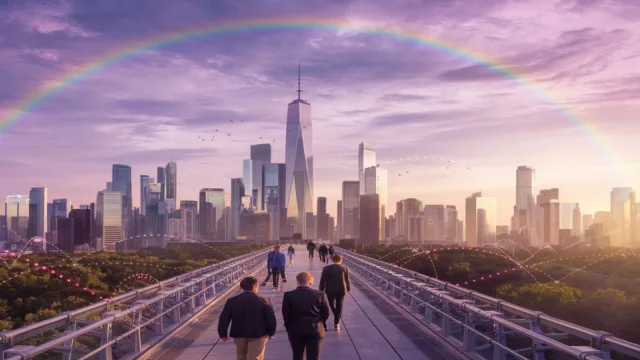



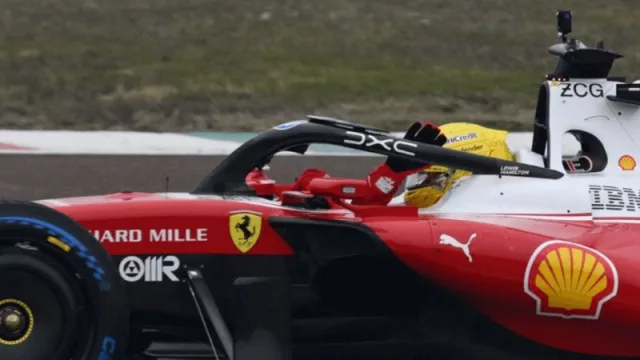
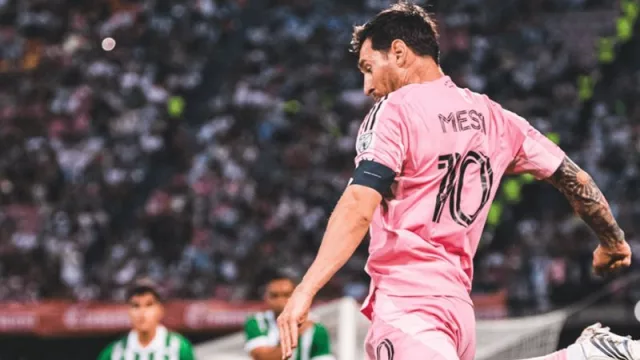

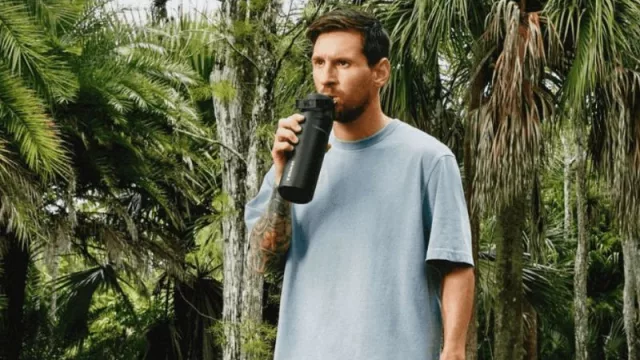


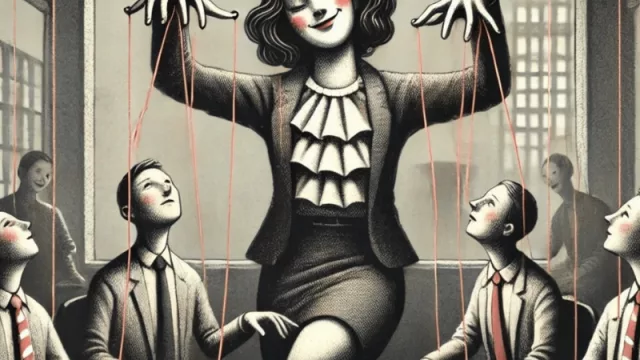

Tu opinión enriquece este artículo: